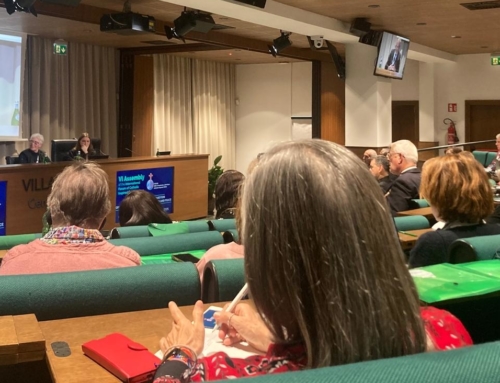15 February 2023,
The World Social Report is a leading publication that focuses on significant social topics issued by the United Nations Secretariat’s Department of Economic and Social Affairs (DESA), which serves as a crucial link between global economic, social, and environmental policies and national action.
The World Social Report 2023 explores social and economic opportunities and challenges that come with population ageing – with a rising number of people aged 65 or over worldwide.
According to the report, the number of old people in the world may rise from 761 million in 2021 to 1.6 billion in 2050 (p. 17). This trend is estimated to be irreversible due to demographic changes like longer life expectancy, smaller families and lower fertility rates. Europe and Northern America have the highest share of older people currently, but in the next 30 years, the fastest growth in the elderly population is expected in Northern Africa, Western Asia, and sub-Saharan Africa.
The report brings attention to the increase in the dependency ratio, i.e. the number of children and older persons to the working-age population.[1] “In 2021, 1 in 10 people worldwide was aged 65 or over compared to 1 in 20 in 1950. In 2050, this age group may account for 1 in 6 people worldwide” (p. 21). Apart from fertility rates and longer life expectancy, the report mentions the “cohort effect” of the „baby boomers” that are entering retirement.
FAFCE welcomes the mention by the United Nations of the incompatibility between professional career and family life as one of the causes of low fertility rates and the estimation of various family policies that encourage parents to have more children. The report provides data showing that “policies that lower the costs of childbearing in a predictable way over several years, not just around the time of birth, are more likely to be effective” (p. 34).
Family policies have a better impact when they are structural, stable and long-term, fostering an environment favourable to families with children, as called by FAFCE already in 2018: „a true family policy is not just a mere social support, but represents a forward-looking policy for the common good for an ageing society.” (FAFCE’s Board Resolution “for a Demographic Spring” (Vienna, 13 April 2018)).
The report highlights the importance for older people to remain active and interact with younger generations: this goes in the same direction of what was stated in the Autumn 2020 FAFCE Board Resolution, that called EU Member-States to “promote the intergenerational solidarity: all generations are interdependent and care for each other.”
The UN report highlights the challenges posed by an ageing population on the healthcare and tax systems (such as increased expenditure on pensions) and suggests using the skills and experience of the elderly to benefit society, since “older persons generally transfer more to their children and grandchildren than what they receive from them” (p. 51).
The report signalises that population-ageing is leading to a demand for long-term care solutions. Lack of government attention and policy proposals results in low wages, difficult working conditions and poor quality of the services, which affects the dignity and feeling of community for the elderly. The UN expresses concern about the fact that most caregivers are poorly paid, their work is undervalued, and they are often women (who face cultural expectations) or migrants whose work cannot be formalised – „80% of all long-term care in Europe is provided by informal caregivers” (p. 114).
While the report aims to provide a supportive framework to help implement national policies that create equal, fair and inclusive societies for people of all ages, it has a value in bringing attention to human dignity, the need to protect families and their role in the demographic changes, as well as intergenerational exchange and the priceless potential that older persons present for societies.
[1] https://www.un.org/esa/sustdev/natlinfo/indicators/methodology_sheets/demographics/dependency_r atio.pdf







